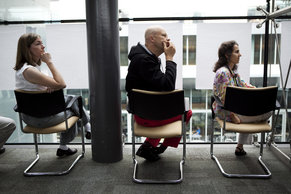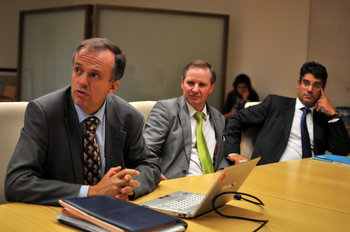
Leadership
Change management primarily describes the role of the executives who sponsor and lead programs, projects and initiatives. As with leadership, it is frequently claimed that change management is "everyone's responsibility." This can be a bit of a distraction as change management is most effective when it is assigned to a specific individual or team. Change is more likely to be successful with a strong leader, or team of leaders out front communicating, clearing roadblocks and rewarding those who make the change happen.Primary Duties
As with leadership, change management is more art than science. It is associated with the ability to inspire people to achieve their support for change. As such, it requires more than dull factual communication but an ability to make people feel the urgent competitive need for change and buy-in to a vision of the future.It is common for people to resist change and change management is designed to breakdown this resistance. Leaders also work to clear issues, sideline remaining resistance and reward those who drive a change forward.| Overview: Change Management | ||
Type | Leadership | |
Definition | The practice of planning and leading change. | |
Notes | The term change management is also used to describe the process of submitting, reviewing, approving, planning and implementing change requests. This is a completely separate and virtually unrelated function to the leadership discipline of change management. | |
Related Concepts | ||





























